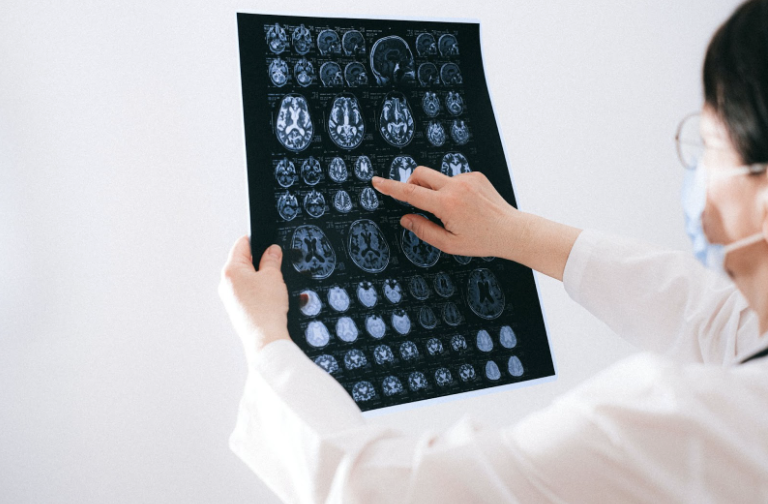|
By Megan Samuels, MSW, LMSW, Outreach Coordinator Dialectical Behavior Therapy, or DBT for short, is a treatment modality that has research to support its effectiveness for the treatment of suicidality, borderline personality disorder, eating disorders, and self harm behaviors. It has four sections, also known as modules, which are mindfulness, interpersonal effectiveness, distress tolerance, and emotion regulation. All of these components are helpful to the process of recovering from an eating disorder. One skill in the emotion regulation module of DBT is learning to cope ahead for future situations that may be triggering. For a lot of folks in eating disorder recovery, the holidays can be an activating time. Here are some ways that the holidays can bring up eating disorder thoughts and behaviors (please note that this list is not exhaustive):
There are five steps in the cope ahead skill. I will outline the steps below and then I will walk you through an example.
Example:
**It’s important to note that it is not helpful to beat yourself up for binge eating and that binge eating and other eating disorder behaviors may be a resilient attempt at coping with experiences of oppression, trauma, difficult emotions, etc. AND in the long-run it is likely not serving you. This skill can be practiced for any event or situation that may trigger a problematic behavior. If you are not sure where to start, you can think about the eating disorder behaviors that you engage in and what potential holiday situations may increase the likelihood of those behaviors occurring. Another note about this skill, we want to begin to use this skill when we are feeling regulated (ventral vagal nervous system state) and not activated in order to strengthen the adaptive coping neural networks in our brain. For an introduction on what DBT is and how it can be applied to eating disorder recovery, please check out this blog: Want more? The majority of the therapists at The Eating Disorder Center have extensive training and experience in using Dialectical Behavior Therapy (DBT) as an effective treatment modality for eating disorders. Contact us for a free 15-minute consultation today! References: DBT Skills Training Handouts and Worksheets, Second Edition by Marsha M. Linehan. Copyright 2015 by Marsha M. Linehan. *Disclaimer: The information is provided for educational and informational purposes only. It is not intended to be a substitute for your independent medical decision-making nor a recommendation or endorsement for any particular treatment plan, organization, provider, professional service, or product. You assume all responsibility and risk for any use of the information. Schedule a free 15 min consult for eating disorder therapy in MD, VA, DC, NY, FL, or recovery coaching worldwide. Click here The Eating Disorder Center is a premier outpatient eating disorder therapy center founded by Jennifer Rollin. We specialize in helping teens and adults struggling with anorexia, binge eating disorder, bulimia, OSFED, and body image issues. We provide eating disorder therapy in Rockville, MD, easily accessible to individuals in Potomac, North Potomac, Bethesda, Olney, Silver Spring, Germantown, and Washington D.C. We also provide eating disorder therapy in Arlington, Virginia and virtually throughout Virginia. Additionally, we offer eating disorder therapy virtually in New York (NYC), Florida, and California. We provide eating disorder recovery coaching via Zoom to people worldwide. Connect with us through our website at www.theeatingdisordercenter.com
By Megan Samuels, MSW, LMSW, Outreach Coordinator Those pesky eating disorder urges can often come at times when we are busy and need to focus on other tasks (for example being at school or at work). It can be nice to have some coping skills in your back pocket for when these urges arise. If you are able to, practice these coping skills before the urges come up and you are needing to use them. This way, you are able to build adaptive neural networks in your brain for those coping skills. Meaning, when you need them, they will be easier for your brain to retrieve (similar to the concept of “muscle-memory”). But first - what’s an eating disorder urge? An urge is a strong desire to do something, so an eating disorder urge is a strong desire or impulse to engage in eating disorder behaviors (such as binge eating, restricting, purging, body checking, etc.) An eating disorder urge is often associated with a feeling or a thought. For example, someone might have the thought, "I don’t like the way that I look.” That thought may contribute to an urge to restrict food intake. Below is a description of four coping skills that can be helpful. Not all skills for work everyone, so I invite you to try them out and see which one helps to decrease the intensity or the eating disorder urges. Remember that it likely won’t work on the first try - these skills need to be repeated so our brain can access them more easily when we need them! Coping Skill - Container
Coping Skill - Deep Breathing
Coping Skill - Distraction
Coping Skill - 5, 4, 3, 2, 1 Grounding Exercise
If you have a therapist or coach on your team, I invite you to practice these coping skills with them in session so you have space to process these skills and tweak them (if needed) to better fit your recovery goals. Schedule a free 15 min consult for eating disorder therapy in MD, VA, DC, NY, FL, or recovery coaching worldwide. Click here The Eating Disorder Center is a premier outpatient eating disorder therapy center founded by Jennifer Rollin. We specialize in helping teens and adults struggling with anorexia, binge eating disorder, bulimia, OSFED, and body image issues. We provide eating disorder therapy in Rockville, MD, easily accessible to individuals in Potomac, North Potomac, Bethesda, Olney, Silver Spring, Germantown, and Washington D.C. We also provide eating disorder therapy in Arlington, Virginia and virtually throughout Virginia. Additionally, we offer eating disorder therapy virtually in New York (NYC), Florida, and California. We provide eating disorder recovery coaching via Zoom to people worldwide. Connect with us through our website at www.theeatingdisordercenter.com
By Caroline Roberts, EDC Psychology Intern There is absolutely no such thing as not being “sick enough” for eating disorder treatment. All individuals struggling with their relationship to food and their body are deserving of treatment and support. Also one individual may show signs and symptoms that are completely different from what another individual is experiencing, and that’s okay. There are multiple factors that can affect how someone personally experiences an eating disorder, including body type, age, gender, race/ethnicities, and socioeconomic status. With so many confounding variables that surround an eating disorder, no two experiences should be compared. With an eating disorder, it is commonly mistaken that an individual has to show certain kinds of physical symptoms to be considered “sick,” however an eating disorder is a mental illness. Symptoms can occur in the form of unhealthy thoughts and fears correlated to eating. Therefore, it’s important to remember that there are many symptoms you may be experiencing that aren’t revealed in the physical form! Additionally, eating disorder recovery isn’t linear. There are going to be good days and bad days. These good and bad days look different for everyone. It’s important to note that just because you have a good day does NOT mean that you are not struggling or deserving of treatment and support. The good days should be acknowledged and celebrated, but with the notion that you still can be “sick enough” to have additional support throughout your nonlinear Eating Disorder recovery journey. Many eating disorders go undetected because of these comparisons and misconceptions. If you find yourself experiencing restrictive, obsessive, and negative thoughts toward food, weight, and/or exercise then you may want to consider seeking support! Schedule a free 15 min consult for eating disorder therapy in MD, VA, DC, NY, FL, or recovery coaching worldwide. Click here The Eating Disorder Center is a premier outpatient eating disorder therapy center founded by Jennifer Rollin. We specialize in helping teens and adults struggling with anorexia, binge eating disorder, bulimia, OSFED, and body image issues. We provide eating disorder therapy in Rockville, MD, easily accessible to individuals in Potomac, North Potomac, Bethesda, Olney, Silver Spring, Germantown, and Washington D.C. We also provide eating disorder therapy in Arlington, Virginia and virtually throughout Virginia. Additionally, we offer eating disorder therapy virtually in New York (NYC), Florida, and California. We provide eating disorder recovery coaching via Zoom to people worldwide. Connect with us through our website at www.theeatingdisordercenter.com
By Olivia Kline, EDC Administrative Assistant In the mental health field, there is ongoing research to address the gap between mental health disorders and the brain, in hopes that it will create improved and more effective treatment methods. These types of discoveries take a lot of time, effort, and innovation – I learned this first hand when I worked at the National Institutes of Health as a research fellow. Through this experience, I performed magnetic resonance imaging (MRI) on brains of participants in our studies. The overall goals for our studies were to understand the underlying brain mechanisms of neurodevelopmental and psychiatric disorders. Within this role, I utilized my lab's data to take on my own research projects. This created a strong interest of mine in learning about the relationship between the brain and mental health disorders. Fast forward to today, I landed an incredible position as an Administrative Assistant at the Eating Disorder Center. Within a few months of working here, I became curious about the relationship between eating disorders and the brain, specifically during eating disorder recovery. Over the years, research explains that eating disorder recovery improves brain function and structure. For instance, Wagner et. al (2006) conducted a study investigating cerebrospinal fluid (CSF) volumes as well as gray and white matter volume in individuals who were at least one year recovered from anorexia or bulimia nervosa. CSF helps protect the brain and helps us reach homeostasis by regulating the temperature and nutrition of our Central Nervous System. Gray matter in the brain helps us process sensory information, motor movements, speech and cognition. White matter is responsible for providing communication between these essential gray matter areas. This study discovered that those recovered had similar CSF as well as gray and white matter volumes to the control group. Since those who are struggling from these disorders often have irregular CSF and gray/white matter volumes, this study suggests that during recovery these parts of your brain can also recover. In a more recent study, Seitz et al. (2014) analyzed how the length of time in recovery from anorexia relates to improved brain function. They discovered that within 2 to 5 months of recovery, about half of the brain’s gray matter volumes and almost all white matter volume were back to typical volumes. Additionally, in more long term recovery (2 to 8 years) white and gray matter volumes in individuals recovered from anorexia were not significantly different than volumes in those without an eating disorder. In other words, in long term recovery, the brain is able to return back to typical structure and function. While there are definitely more unanswered questions about the brain and eating disorder recovery, I wanted to share some of these findings to show how resilient our brains and bodies are, even after struggling from a mental health disorder. These studies show how during and after eating disorder recovery, the brain recovers too. Evidence-based treatments provide us with tools and skills to recover from eating disorders and can ultimately restore brain structure and function, according to this research. The Eating Disorder Center can help you start your recovery journey or support you through recovery! We have therapists that can help in MD, DC, VA, NY & FL, as well as coaches worldwide that can assist you with food and body image concerns. References: Wagner, A., Greer, P., Bailer, U.F., Frank, G.K., Henry, S.E., Putman, K., Meltzer, C.C., Ziolko, S.K., Hoge, J. McConaha, C., & Kayna, W.H. (2006). Normal brain tissue volumes after long-term recovery in anorexia and bulimia nervosa. Biological Psychiatry, 59(3), 291-293. http://doi.org/10.1016/j.biopsych.2005.06.014 Seitz, J., Bühren, K., von Polier, G. G., Heussen, N., Herpertz-Dahlmann, B., & Konrad, K. (2014). Morphological changes in the brain of acutely ill and weight-recovered patients with anorexia nervosa. A meta-analysis and qualitative review. Zeitschrift fur Kinder- und Jugendpsychiatrie und Psychotherapie, 42(1), 7–18. https://doi.org/10.1024/1422-4917/a000265 Schedule a free 15 min consult for eating disorder therapy in MD, VA, DC, NY, FL, or recovery coaching worldwide. Click here. The Eating Disorder Center is a premier outpatient eating disorder therapy center founded by Jennifer Rollin. We specialize in helping teens and adults struggling with anorexia, binge eating disorder, bulimia, OSFED, and body image issues. We provide eating disorder therapy in Rockville, MD, easily accessible to individuals in Potomac, North Potomac, Bethesda, Olney, Silver Spring, Germantown, and Washington D.C. We also provide eating disorder therapy in Arlington, Virginia and virtually throughout Virginia. Additionally, we offer eating disorder therapy virtually in New York (NYC), Florida, and California. We provide eating disorder recovery coaching via Zoom to people worldwide. Connect with us through our website at www.theeatingdisordercenter.com
By Megan Samuels, MSW, LMSW, Outreach Coordinator Halloween is exciting for kiddos (and adults) for many reasons, including the candy. I look forward to the Halloween themed foods, such as the donuts with sprinkles in the shapes of orange and black spiders on them. I also love the decorations and how spirited and festive people get around Halloween. Halloween and the month of October seems to be filled with things that are “scary” or “spooky,” such as ghosts, goblins, witches, etc. What is even scarier than that you might wonder… is diet culture. Let’s think about this. Diet culture tricks people into believing that dieting is the only way to be happy or to succeed. In reality, diet culture takes away from holidays and celebrations, including Halloween. Diet culture has truly been ruining holidays since the existence of humans. This blog will include some ways to spot diet culture during Halloween and some tips on how to ditch diet culture and reclaim Halloween as a festive and exciting holiday! Here are some ways that diet culture can infiltrate Halloween: 1. Limiting the amount of candy we eat on Halloween.
2. Losing weight before Halloween to look a certain way in Halloween costume.
3. People passing out food that is deemed “more healthy” than candy on Halloween.
Here are some ways that we can reclaim Halloween and ditch diet culture: 1. Distract ourselves from diet culture.
2. Educate ourselves and others.
3. Practicing an intuitive relationship with food.
References: Harrison C. (2019). Anti-diet: reclaim your time, money, well-being, and happiness through intuitive eating (First). Little Brown Spark. Schedule a free 15 min consult for eating disorder therapy in MD, VA, DC, NY, FL, or recovery coaching worldwide. Click here. The Eating Disorder Center is a premier outpatient eating disorder therapy center founded by Jennifer Rollin. We specialize in helping teens and adults struggling with anorexia, binge eating disorder, bulimia, OSFED, and body image issues. We provide eating disorder therapy in Rockville, MD, easily accessible to individuals in Potomac, North Potomac, Bethesda, Olney, Silver Spring, Germantown, and Washington D.C. We also provide eating disorder therapy in Arlington, Virginia and virtually throughout Virginia. Additionally, we offer eating disorder therapy virtually in New York (NYC), Florida, and California. We provide eating disorder recovery coaching via Zoom to people worldwide. Connect with us through our website at www.theeatingdisordercenter.com
By Jennifer Rollin, MSW, LCSW-C The world is beautiful and everything is amazing. Colors look more vibrant and music sounds incredible. She could listen to it all day. She’s finding that she has a ton of energy, despite sleeping a lot less lately. She feels like she is on top of the world. Ideas flow out of her mouth quickly; people are looking at her funny at times because she is speaking so rapidly. And money doesn’t matter anymore. She feels more impulsive than ever and keeps “adding to cart” online. Shopping has never felt so appealing. She starts to believe that she has special powers, which she can use to bring the universe and world to a state of peace. She feels she is so important that Taylor Swift is directly speaking to her in her music. Her friends and family are concerned about her - but she’s not quite sure what the problem is. It feels amazing, until it doesn’t. Her mood is starting to dip and she’s beginning to feel embarrassed about all of the impulsive things she has said and done. The guilt and anxiety is also creeping in about how much money she has spent - on things that she did not need. And then comes the crash. She is exhausted. Sleeping 12 hours a night, but waking up tired. It’s an effort to even take a shower or make a cup of coffee. Her mind starts telling her that maybe it would be better off for everyone if she wasn’t here. That she is a terrible burden. That there is no use living this way (depression tells a LOT of lies). This cycle is becoming exhausting and she feels so trapped and tired. She also feels very alone, like no one else in her life understands what she is going through. She wishes there were people in her life who “got it.” **This is an example of bipolar 1. Everyones specific symptoms can look a bit different, however there typically commonalities. Living with Untreated Bipolar Disorder Is Exhausting. While bipolar disorder is a chronic condition, there absolutely is hope for better management of the symptoms and for being able to pursue your life values. Many therapists and psychiatrists are not trained in treating and supporting those with bipolar disorder and it can feel frustrating when one is seeing a provider who doesn’t know how to help them. Therapeutic treatments that can be helpful for individuals with bipolar disorder include interpersonal social rhythm therapy, dialectical behavioral therapy for bipolar, and acceptance and commitment therapy. Additionally, trained therapists have skills and tools for helping you to better manage triggers and episodes-when they occur. No two people with bipolar disorder are the exactly same, however, there are strategies and tools that can help. Having a therapist who is skilled in working with individuals with bipolar disorder, as well as a psychiatrist who is also trained in this area, can be life-changing. Living with bipolar disorder that is untreated and also feeling the burden of stigma, while feeling alone and misunderstood, can be highly exhausting. There Is Hope. Working with professionals who are highly knowledgeable about bipolar disorder can feel refreshing and hopeful. Check out our other blog about bipolar disorder: Our practice sees individuals with bipolar disorder for virtual therapy in Maryland, Virginia, and Florida. If you are struggling with bipolar disorder click the link below to schedule a free 15 min phone consultation with a therapist. Click here. The Eating Disorder Center is a premier outpatient eating disorder therapy center founded by Jennifer Rollin. We specialize in helping teens and adults struggling with anorexia, binge eating disorder, bulimia, OSFED, and body image issues. We provide eating disorder therapy in Rockville, MD, easily accessible to individuals in Potomac, North Potomac, Bethesda, Olney, Silver Spring, Germantown, and Washington D.C. We also provide eating disorder therapy in Arlington, Virginia and virtually throughout Virginia. Additionally, we offer eating disorder therapy virtually in New York (NYC), Florida, and California, serving those in cities including Palo Alto, San Francisco, Newport Beach, Los Angeles, Woodland Hills, San Jose, and Beverly Hills. We provide eating disorder recovery coaching via Zoom to people worldwide. Connect with us through our website at www.theeatingdisordercenter.com
By Caroline Roberts, EDC Intern Being a part of a team can be such a special experience. A group of individuals working together to achieve the same goals: winning and improving. Amidst all of the time and effort that is put in together, you start to become more like a family than a team. This means that you know and care for your teammates on a different level. Oftentimes, disordered eating habits are prevalent in athletes. In fact, one study found that 25% of female athletes reported disordered eating behaviors (Greenleaf et al., 2009). If this is the case for one of your teammates there are things you can do to help! 1. Pay attention You know your teammates well. You know their normal attitudes, and how they normally play at practice or in a game. If you notice that they seem withdrawn from team conversation and partake in self-isolating behavior, you may want to check in with them. Additionally, if you notice they are showing signs of fatigue, dizziness, are excessively sore or injured these are also key indicators that they may be experiencing difficulties eating. These are only some of the many signs and symptoms that can indicate a potential eating disorder. The most important thing you can do is pay attention to any changes in your teammates' usual behavior. They may be struggling silently, and having a teammate notice that, can go a long way. 2. Treat them as a whole person, not just as an athlete In the case that a teammate comes to you for support, the most helpful thing that you can do is listen. Not everyone understands the ins and outs that come with an eating disorder, so it’s okay if you’re not an expert! However, listening to your teammate is something that can go a long way in helping them recover. It may seem like a form of tough love to say things like, “If you don’t eat, you won’t play” or “If you don't eat for yourself, do it for the team,” however these are NOT constructive statements. If your teammate trusts you enough to open up to you, they don’t want to feel pressured into recovering just so that they can play a sport. They want to know that they have your support for whatever steps are necessary in their recovery process. 3. Offer support I know this tip seems rather obvious, but there are many different forms of support that are sometimes overlooked! Every person is different so the type of support one person might seek is different from the type of support that someone else needs. For some, eating meals with a teammate would be beneficial. When you’re on a team, you typically eat a lot of meals together. Making sure you sit and eat with your teammate lets them know that they aren’t alone in this process. For other people, they may want support in the form of spending quality time with you. Doing things outside of playing your sport and outside of eating meals, can be a healthy distraction from thinking about the different triggers of their disorder. The best way to find out what kind of support your teammate needs from you, is to talk to them about it and remain patient and consistent in your efforts! 4. Ask for help Eating disorders can be very private for some people. So while you should respect their privacy, it’s okay to acknowledge that you could also use some help while you support them. Turning to a coach, therapist, or trusted adult is a great outlet for helping you navigate the situation! The Eating Disorder Center has coaches and therapists who have extensive experience working with athletes struggling with eating and body image struggles. References: Greenleaf, C., Petrie, T. A., Carter, J., & Reel, J. J. (2009). Female collegiate athletes: prevalence of eating disorders and disordered eating behaviors. Journal of American college health: J of ACH, 57(5), 489–495. https://doi.org/10.3200/JACH.57.5.489-496 For more blogs related to athletes, check out: Schedule a free 15 min consult for eating disorder therapy in MD, VA, DC, NY, FL, or recovery coaching worldwide. Click here. The Eating Disorder Center is a premier outpatient eating disorder therapy center founded by Jennifer Rollin. We specialize in helping teens and adults struggling with anorexia, binge eating disorder, bulimia, OSFED, and body image issues. We provide eating disorder therapy in Rockville, MD, easily accessible to individuals in Potomac, North Potomac, Bethesda, Olney, Silver Spring, Germantown, and Washington D.C. We also provide eating disorder therapy in Arlington, Virginia and virtually throughout Virginia. Additionally, we offer eating disorder therapy virtually in New York (NYC), Florida, and California. We provide eating disorder recovery coaching via Zoom to people worldwide. Connect with us through our website at www.theeatingdisordercenter.com
By Jennifer Rollin, LCSW-CYour recovery from an eating disorder is going strong. You’ve been making progress in terms of facing challenging foods, learning how to surf eating disorder urges, unpacking negative body image, and working diligently with your therapist and dietitian. You are finally starting to see the amazing life that you have without active eating disorder behaviors. Then, a major stressor hits you. Perhaps your relationship just ended, you got a new job, you lost a loved one, or have an upcoming graduation. You don’t notice it at first but you have gradually started cutting back on food (or slipping into old food rules/other eating disorder behaviors), skipping therapy appointments, and notice that your thoughts are becoming more preoccupied with food and your body. Your eating disorder voice becomes louder, yet you are in denial that it is starting to take control again. Perhaps this regression ends in a slip of old behaviors or maybe even a full-blown relapse. The following are three tips for what to do following a lapse or relapse in eating disorder recovery. 1. Reach out for support from a trained professional. You may feel embarrassed or ashamed to admit that you are struggling again. However, reaching out for support when you are struggling is a sign of true strength, not weakness. If you are slipping in your recovery, it’s critical that you reach out to a therapist who specializes in eating disorders. Additionally, it’s important to be honest with them about the disordered behaviors that you are currently struggling with. Your "eating disorder voice," may tell you that you aren't "sick enough" to seek help. This is utterly false. Everyone who is struggling, deserves access to help and support. No one should have to recover from their eating disorder alone. You deserve to have support to help you to get back on track in your recovery. 2. Remind yourself of your reasons to recover. When things feel hopeless or “too challenging”, it can be tough to find motivation to continue to work on your recovery. Many of my clients with eating disorders struggle with “black and white thinking.” For instance, you could be telling yourself something like, “I already failed at my recovery, I may as well just give up.” If these kinds of unhelpful thoughts start to pop up, it’s crucial that you remind yourself of your reasons to recover (as well as to practice some mindfulness techniques related to the unhelpful thoughts). For instance, one exercise that I sometimes ask clients to do is to imagine what their life could look like 5 years from now if they stay trapped in their eating disorder vs. five years from now if they are recovered. You deserve a full life, one that you cannot have if you continue to stay stuck in your eating disorder. 3. Practice self-compassion. It's important to note that you are certainly not alone in experiencing a relapse or lapse in eating disorder recovery. If you do experience this, it is important to try to practice some self-compassion. “Beating yourself up” for struggling will only serve to make you feel even worse. You have not failed; you simply need more support. Recovery is typically not a linear process, and you may have both successes and setbacks along the way. Additionally, it’s important to note that you are not “starting again from square one.” Just because you had a relapse, does not invalidate all of the progress that you have already made. Instead of viewing your relapse or lapse as a “failure,” try to reframe it as an opportunity to learn from. You may just find that you emerge an even stronger person after having overcome the latest setback in your recovery. You Deserve A Full Life When you look back on your life at age 90, do you think that you will be fondly reminiscing about the amount of time you spent counting calories, avoiding social events, running obsessively on the treadmill, or hiding empty cartons of food in shame? Living trapped in an eating disorder is ultimately not a fulfilling life. You didn’t choose to have an eating disorder and it makes sense that you may be unconsciously turning to old ways of coping that felt like they served you at one time in your life. You deserve to send yourself so much compassion. Eating disorders are NOT choices, they are mental illnesses. However for some folks they may be in part unconscious coping skills for trying to manage past trauma, racism, anti-fat bias, anxiety, relational and attachment wounds, mood disorder symptoms-and stressful life events. No matter what lies your eating disorder may be telling you, your life is worth so much more than obsessing about food and your body. A relapse DOES NOT mean that you’ve failed. It is simply a warning sign of both increased eating disorder work that needs to happen and often underlying issues that have come up. As always, i’m over here rooting for you! Schedule a free 15 min consult for eating disorder therapy in MD, VA, DC, NY, FL, or recovery coaching worldwide. Click here. The Eating Disorder Center is a premier outpatient eating disorder therapy center founded by Jennifer Rollin. We specialize in helping teens and adults struggling with anorexia, binge eating disorder, bulimia, OSFED, and body image issues. We provide eating disorder therapy in Rockville, MD, easily accessible to individuals in Potomac, North Potomac, Bethesda, Olney, Silver Spring, Germantown, and Washington D.C. We also provide eating disorder therapy in Arlington, Virginia and virtually throughout Virginia. Additionally, we offer eating disorder therapy virtually in New York (NYC), Florida, and California. We provide eating disorder recovery coaching via Zoom to people worldwide. Connect with us through our website at www.theeatingdisordercenter.com
By Megan Samuels, MSW, LMSW, Outreach Coordinator ARFID stands for avoidant/restrictive food intake disorder. This is a common eating disorder that can often be under-diagnosed, or just labeled as “picky eating.” ARFID has not always been recognized as a disorder, but was added to the DSM-5, which is the fifth edition of the diagnostic and statistical manual of mental disorders. According to the DSM-5, a diagnosis of ARFID is met with all of the following: A. An eating or feeding disturbance (e.g., apparent lack of interest in eating or food; avoidance based on the sensory characteristics of food; concern about aversive consequences of eating) as manifested by persistent failure to meet appropriate nutritional and/or energy needs associated with one (or more) of the following:
C. The eating disturbance does not occur exclusively during the course of anorexia nervosa or bulimia nervosa, and there is no evidence of a disturbance in the way in which one’s body weight or shape is experienced. D. The eating disturbance is not attributable to a concurrent medical condition or not better explained by another mental disorder. Additionally, when the eating disturbance occurs in the context of another condition or disorder, the severity of the eating disturbance exceeds that routinely associated with the condition or disorder and warrants additional clinical attention. ARFID stands out from the other eating disorders as it includes a lack of interest or avoidance because of sensory or aversive consequences, as opposed to a desire to change the way that one looks. Some warning signs for ARFID may include (but are not limited to):
What does recovery from ARFID look like? Typically, recovery from ARFID includes getting a therapist, dietitian, and doctor on board. The therapist can treat the eating disorder, do food exposures, and any other symptoms, including anxiety or depression. A dietitian can make sure that you are getting enough nutrition and food, along with facilitating food and meal exposures. A doctor can regularly assess to make sure that lab work is normal and that the body is getting enough nutrition. Full recovery from ARFID is possible! If you or a loved one may be struggling with ARFID, we can help! The Eating Disorder Center has therapists and recovery coaches who are trained in treating ARFID, among other eating disorders. Contact us today for a free 15-minute consultation. References: American Psychiatric Association. (2013). Diagnostic and statistical manual of mental disorders (5th ed.). https://doi.org/10.1176/appi.books.9780890425596 *Disclaimer: The information is provided for educational and informational purposes only. It is not intended to be a substitute for your independent medical decision-making nor a recommendation or endorsement for any particular treatment plan, organization, provider, professional service, or product. Schedule a free 15 min consult for eating disorder therapy in MD, VA, DC, NY, FL, or recovery coaching worldwide. Click here. The Eating Disorder Center is a premier outpatient eating disorder therapy center founded by Jennifer Rollin. We specialize in helping teens and adults struggling with anorexia, binge eating disorder, bulimia, OSFED, and body image issues. We provide eating disorder therapy in Rockville, MD, easily accessible to individuals in Potomac, North Potomac, Bethesda, Olney, Silver Spring, Germantown, and Washington D.C. We also provide eating disorder therapy in Arlington, Virginia and virtually throughout Virginia. Additionally, we offer eating disorder therapy virtually in New York (NYC), Florida, and California. We provide eating disorder recovery coaching via Zoom to people worldwide. Connect with us through our website at www.theeatingdisordercenter.com
By Caroline Roberts, EDC Intern Tip #1: Make Time For it Being a collegiate athlete means having a busy schedule. On top of having to go to class and spending lots of time in the library, you also have the obligation of attending team meetings, lifts, practice, and games. In a day filled with all of these commitments, it’s important to remember that you also have a commitment to yourself… a commitment to stay nourished and energized. So, the next time you’re planning your day out to the minute, it can be helpful to physically write down times throughout the day that are allotted for meals and snacks. If you want to be a successful student and athlete then you can’t dismiss the importance of a consistent eating schedule. Your body and brain are extremely active and stimulated throughout the day; they need energy in order to be successful and that comes in the form of food! Tip #2: Don’t Let the Dining Hall Discourage You Whether you’re not a fan of what is being served, or the hours of operation don’t align with your busy schedule, college dining halls can pose challenges to all students. But, don’t panic! If you’re not a fan of what your dining hall is serving on a particular day, there are usually solid options that remain constant aside from the changing menus. For instance, there’s likely to be some version of a cereal and bagel station at all times, along with a salad bar and sandwich station. These options can be helpful when you don’t like what’s being served or when you want a snack before your two hour evening practice. However, athletes should also remember that it is perfectly ok to eat foods like pizza, nuggets, and tacos. You are not restricted to only eating whatever society deems “healthy.” ALL foods can fit into a healthy diet (barring genuine allergies and medical conditions). The most important part about fueling your body as an athlete is making sure you get enough protein, carbs, fats, etc. so that your body can sustain its active lifestyle. Tip #3: Listen to Your Body As a collegiate athlete, you demand a lot of your body. Having multiple lifts, practices, and games in a week means that your body needs to be properly fueled. Adjusting to the lifestyle of a collegiate athlete may mean you’re hungrier than you’re used to. THAT IS OKAY! Listen to your body! If you’re still hungry after one serving of a meal, eat another serving! If you’ve already eaten 3 meals, but you’re hungry after your evening practice, then eat something else! When in doubt, listen to your body because it knows what it needs in order for you to be successful in your sport. It’s important to note that in early eating disorder recovery you might need to trust a treatment team in order to know what to eat as hunger and fullness cues may be off or not existent. Tip #4: Stand Up to the Toxic Internal and External Voices Misleading You Many athletes have a preconceived notion that they need to live a “healthier” lifestyle. However, living “healthier” can turn into “eating less” or “overexercising” if you’re not careful. Whether it’s social media, a member of your coaching staff, or your internal self that is painting a picture of what an athlete is “supposed to look like,” it’s important to try to find the strength to ignore that extremely false narrative. Every individual is different. Every individual looks different. Body diversity is real. These points remain just as true for athletes in particular. So, as hard as it may be, remind yourself that there is no perfect shape you have to be to be a successful athlete. If you are a collegiate athlete looking to better your relationship with food and/or body image, we can help! Our therapists and coaches would love to help support your healing journey. Schedule a free 15 min consult for eating disorder therapy in MD, VA, DC, NY, FL, or recovery coaching worldwide. Click here. The Eating Disorder Center is a premier outpatient eating disorder therapy center founded by Jennifer Rollin. We specialize in helping teens and adults struggling with anorexia, binge eating disorder, bulimia, OSFED, and body image issues. We provide eating disorder therapy in Rockville, MD, easily accessible to individuals in Potomac, North Potomac, Bethesda, Olney, Silver Spring, Germantown, and Washington D.C. We also provide eating disorder therapy in Arlington, Virginia and virtually throughout Virginia. Additionally, we offer eating disorder therapy virtually in New York (NYC), Florida, and California. We provide eating disorder recovery coaching via Zoom to people worldwide. Connect with us through our website at www.theeatingdisordercenter.com
|
The Eating Disorder CenterWe are a premier outpatient eating disorder therapy center in Rockville, Maryland. Archives
July 2024
Categories |










 RSS Feed
RSS Feed